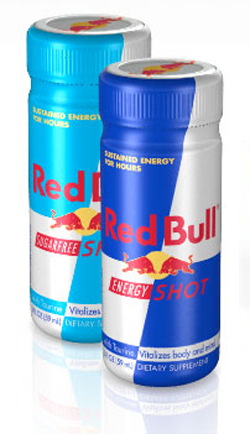By Rachel Berman, RD Director of Nutrition at CalorieCount.com
Just as the new school year is getting underway and students everywhere are looking for a pick-me-up to stay focused in class, the NY State Attorney General announced his investigation of energy drinks and the safety of their caffeine levels. You might remember a couple of years ago when the USDA forced removal of products from the marketplace, such as Four Loko, which added caffeine to alcohol. They deemed it unsafe since caffeine masks the depressant qualities of alcohol and people who mix the two are more likely to binge drink, according to studies.
However, it seems like there’s a new product appearing every week touting its ability to keep you awake and energized. Energy drinks are a billion-dollar industry, the fastest growing segment of the beverage market, and they generally contain caffeine, other plant based supplements, simple sugars and additives to achieve their goal. According to the CDC, about one-third of teenage Americans consume energy drinks. But the problem is that the drinks are considered dietary supplements and therefore aren’t tightly regulated by the FDA like other foods and beverages. So can energy drinks be bad for your health?
Cap the caffeine
The caffeine content listed on energy drinks doesn’t usually exceed the recommended 400 mg per day for adult. However, if you’re downing more than one or mixing with coffee, soda, and other caffeinated beverages, you might be getting more than you need. The FDA recognizes caffeine as a drug and regulates the amount found in carbonated soft drinks, but not in energy drinks. Too much caffeine can cause increased heart beat, interrupted sleep, irritability, and nervousness. In addition, some studies have found that high caffeine content in energy drinks results in irregular heart beat and increased blood pressure.
Guarana, taurine, and ginseng
These are three plant-based supplements you’ll find most frequently in energy drinks. Guarana contains twice the amount of caffeine as in a cocoa bean and it’s not necessarily cut and dry whether or not that’s added to the total caffeine content listed on the beverage label. Taurine is a naturally available amino acid in meat and fish and it’s been touted as a way to increase athletic performance, although studies are limited. Ginseng has been found to help fight fatigue but long term effects aren’t clear.
Sugar
Aside from caffeine, the other ingredient that contributes to increased energy levels (albeit brief) is sugar. The result is fast and causes a crash soon after. The main issue here is that too much excess sugar in your diet leads to weight gain and can increase your risk for dental caries, heart disease and diabetes. Sugar-free varieties will often contain artificial sweeteners which are controversial when it comes to your health.
Bottom Line on Energy Drinks
Having an energy drink once in awhile is different than downing one a few times per day. Since we’re unclear on the caffeine content and the FDA isn’t regulating these beverages, I’d recommend boosting your energy with a balanced diet, minimizing foods high in refined sugar and saturated fat, getting enough sleep and exercise, and drinking plenty of water throughout the day to stay hydrated and energized the natural way.
Also Read:
Bloomberg’s Proposed Soda Nanny State Won’t Magically Switch on Motivation in Citizens
